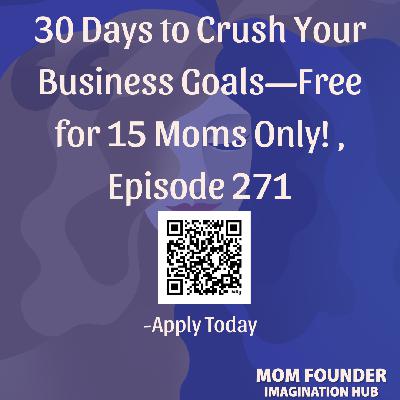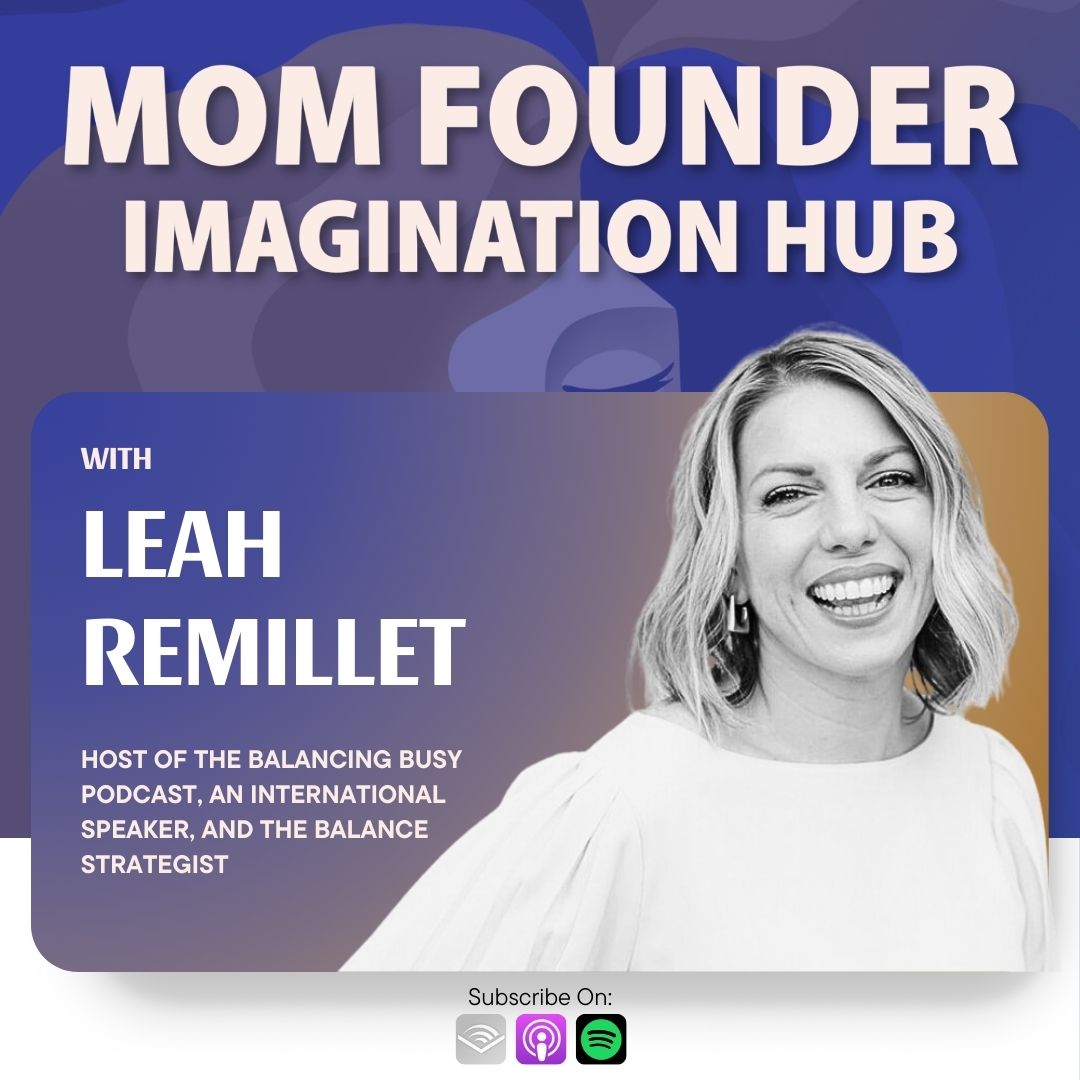269: Are YOUR Limiting Beliefs Secretly Capping Your Kids' Future Success?
Description
My conversation with a non-profit CEO, a long-time mentor, recently turned to our dreams for our children. It began when she shared how her mother had praised her beautiful New Jersey home, which led her to reflect: "I'd want my kids to live in castles! I want them to have even more than I do."
Like any parent, I want my three sons to surpass me in every aspect of life—and even create new categories beyond AI to conquer!
However, I've realized my own limiting beliefs and stress responses could unknowingly cap their success if I don't consciously address them. For example, my fear of openly competing or declaring my ambition for first place—how can my sons confidently compete on a world stage if I haven't confronted this fear? Similarly, if we avoid networking because we fear rejection, can we effectively teach our children to build connections?
This is where our greatest opportunity for inter-generational impact lies: facing our own limitations so they don't become our children's inheritance.
My mother's primary concern was the potential inheritance of her manic depression. This fear led her to anxiously await my thirtieth birthday, believing symptoms would likely manifest before then if I were to inherit it. This sparked my curiosity about breaking the cycle of inherited limiting beliefs for my own sons. For thirteen years, as a mother, I've considered how to proactively guide my children toward success. I believe we can break negative cycles and cultivate a new model of success by nurturing their strengths, fostering healthy mindsets, and focusing on key skills like imagination, cross-cultural thinking, and resilience. This is about empowering our children from the start.
Generational patterns often include inherited personality traits, impacting education and career choices. Families frequently pass down expectations and lessons, often along gender lines. These inherited mindsets shape our understanding of what it means to be a girl or boy within our family. Children observe and adopt behaviors they perceive as normalized expectations. They may also be explicitly taught specific ways of thinking, especially in early childhood. Limiting beliefs can also be passed down. In my family, I observed a lack of desire or ability to ascend into leadership positions or gain mastery in a field. My mother, a secretary for corporate leaders, held a strong limiting belief that she lacked the intelligence to provide valuable recommendations. This idea was ingrained in me, driving my need for external validation in corporate settings. While this mindset sometimes helped me in corporate life, it didn't translate well into entrepreneurship. My mother's limiting belief was essentially a form of impostor syndrome.
Her lack of confidence stemmed from various factors. As a child, I mistakenly attributed it to her not having a four-year degree. She often mentioned her inability to finish her degree as a working mom. Yet, her illness and its constant disruptions likely caused her to question her ability to contribute meaningfully to leadership conversations. As a child, I simply saw her as a secretary supporting leaders. Our family felt inconsequential. This perception shifted when I met children from families who held positions of influence. I realized I needed to address this inherited limiting belief. Though young, caring for my mother fostered a sense of maturity, allowing me to envision a different future. I didn't want to simply play a supporting role.
So, where did I start? 1980s sitcoms like Who's the Boss? sparked my career aspirations. I wanted that life: Connecticut, business owner, advertising. Without a mentor, TV was my guide. Summers stamping travel brochures ignited my wanderlust. London, Singapore – the world felt attainable. My mom didn't travel, but I craved that broader experience. I knew life beyond my zip code held possibilities.
I worked with what I had: imagination. I had a career blueprint from fiction, then exposure to someone who explored globally my stepmother owned a travel agency. I realized following their path wouldn't be easy, but I had something they didn't teach on TV – resilience, inherited from my mom. I knew I could stumble, fall, and get back up.
Ultimately, I achieved that dream: Connecticut, Ogilvy & Mather, even Australia for 3.5 years. My podcast, The Mom Founder Imagination Hub, features conversations with world leaders. These realities weren't in my original blueprint, but resilience was my active ingredient. What's yours? If you want more for your kids, discover it.
Imagination, cross-cultural thinking, resilience – these are the tools to re-architect success for our kids. This is my parenting blueprint now. My sons will tweak it, of course; change demands it.
Let's focus on your kids, your blueprint, and overcoming challenges and limiting beliefs so they can achieve more than you did. How can you transform thoughts like, "I don't feel comfortable asking for money," "Getting on stage gives me anxiety," or "I hate competing" into lessons that build resilience? If you want your child to own a business but you've never had one, you'll need to address these areas of discomfort. Since these limiting beliefs are inherent in entrepreneurship, how can you use them to your advantage?
One way is to challenge yourself to ask for discounts in front of your kids, or challenge them to do it. I dared my kids to do this, letting them keep their savings. This tackles the "asking for money" hurdle. Public speaking anxiety? Bring your kids into the process. Share your fears and how you manage them. Have them brainstorm solutions. The goal is to expose them to the same challenges they'll face and show them how you move forward.
Age-appropriate conversations are key. For the discount example, include prep sessions where you brainstorm possible questions with your kids. They can choose from your list or create their own. ("Can I get a discount for paying cash?" "Is there a student discount?" "Is there a sale coming up?") For public speaking, articulate your worries simply: "Mommy feels yucky in her tummy because she's nervous about talking." This leverages mindfulness – acknowledging the physical sensations of anxiety – to start a conversation.
Here's A Blueprint Reframing Exercise
1. What is a dream you have for your child? (e.g., Living in a castle, owning their own business)
2. What qualities must they have to fulfill that dream?
3. Write out your analysis of whether your blueprint offers those qualities. Pick out the ones that are in direct contrast to what your child will need.
Example
1. You never want your kid to work for a boss in a big corporate company.
2. You know that working for a startup or building one requires the ability to build relationships.
3. You love talking about real-life with your mom friends. You adore helping people. You are a connector. However, you do not like asking for help or asking for intros or turning friendships into professional relationships.
4. Here's an opportunity to work on your limiting belief so that it doesn't get in your kid's way later on: turn a Saturday soccer practice conversation into a business one in front of your kids ideally.
I'm not asking you to do anything I have not already done. During my sons' soccer match I turned a personal friendship into a professional partnership because I took interest in the careers of the moms around me. The same applies for our kids. Yes, in school they might have project-based work but what about in other realms of life from church to sports to music. Give the kids a chance to build personal relationships that can translate into a professional objective outside of their scenarios.
The thinking behind this intentional thinking on your limiting belief not being your kid's limiting beliefs is worthwhile because our minds are flexible. According to Carol Dweck you can change your thinking and as a mother doing this in front of your kids gives your kids a real shot at having what you didn't have due in part to that limiting belief. Take for example one of my clients who is the co-founder of a non-profit that has brought in millions in donations. She recently decided to sing in front of an audience after years of feeling frivolous for doing such things. Her son might be under ten but now his mom has not only expressed herself after years of hiding this personal love of hers but also provided an example to her son of what a woman putting herself out there looks like. Imagine this mom talking to her son ten years from now when he wants to do something silly like be in a band or launch a YouTube channel featuring his own videogames. This conversation will sound very different because his mom now went through every emotion under the sun to get on stage and figured out how to navigate them in a similar way. Ca












